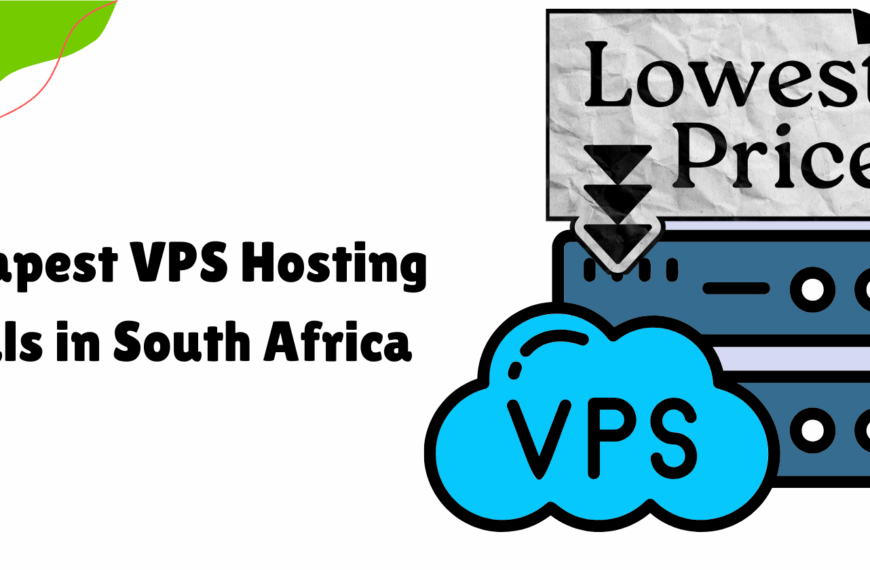Last updated on July 30th, 2025 at 12:03 pm
Are you stuck on cPanel vs. Plesk for your hosting needs? You certainly aren’t the only one!
It is very essential to research and figure out what control panel you will go with for your website management, as it will have an impact on your workflow.
The challenge is how these two—cPanel vs. Plesk — are neck and neck when you call out for the most popular tools for simplifying website and server management.
This renders it so difficult to pick a winner between the two.
I mean, it can change your whole hosting experience.
To make your choice of the best control panel, and a sober one in that matter, we have laid down for you everything about these two tools.
That is from the main features, ease of use, performance, safety, pricing, and how well each works with other software.
Let’s get straight to the point so you can breeze through the analysis.
Table of Contents
Web Hosting Control Panels
Before we jump into the cPanel vs. Plesk showdown, let’s clarify what a web hosting control panel does.
Think of it as the dashboard of your car; it gives you control over your VPS hosting without needing to tinker under the hood.
A control panel lets you manage domains, emails, files, databases, and security settings through a user-friendly interface, saving you time and technical headaches.
In South Africa, where businesses are rapidly going digital, cPanel vs. Plesk dominates the market due to their reliability and feature-rich platforms.
Truehost, a leading web hosting provider, is a great example to help understand these two, since it offers both cPanel and Plesk with its VPS plans, making it crucial to understand which one aligns with your needs.
What are the functions of a hosting control panel?
When you have a control panel, you can use it for the following:
- Domain management
- File management
- Database management
- Email accounts management
- Stats viewing
- Security management
- Installing server software and web scripts
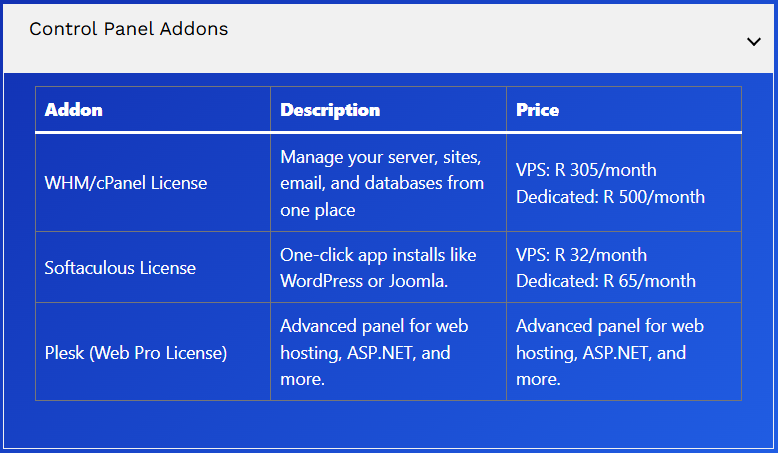
Why cPanel and Plesk Dominate the Market
cPanel and Plesk together hold a massive share of the control panel market:
- cPanel powers 7.3% of all websites
- Plesk powers 4.6% websites, according to ServerGuy
Their popularity stems from their robust features and ease of use, making them ideal for everyone from startups to seasoned developers.
In South Africa, where Truehost powers businesses with affordable hosting, cPanel vs. Plesk is a common debate due to their seamless integration with VPS environments.
About cPanel
CPanel was first released in 1996. It came much earlier than others and therefore became the standard control panel in the market. It is compatible with languages such as Apache, MSSQL, and PHP.
One downside to cPanel is that it is not supported by Windows operating systems. Linux distributions that work well with the panel include Cloud Linux, CentOS, and Red Hat Enterprise Linux.
Since it only works with Linux, an open-source OS, cPanel hosting plans tend to be cheaper than windows-based Plesk options.
South African companies with cPanel hosting options include Truehost Cloud, virtual servers.co.za, Absolute Hosting, Host King, Cool Host, Mweb, Web4Africa, CyberSmart, SA Web host, Web Guru, and Click Works.
Relevance to South African VPS Hosting
For South African businesses, a control panel must be intuitive, reliable, and tailored to local needs like fast load times and strong security.
Truehost’s VPS hosting plans, equipped with NVMe SSD drives and 99.99% uptime, pair perfectly with cPanel or Plesk to deliver a smooth experience.
Anything you’re managing, from a high-traffic site to a small portfolio, understanding cPanel and Plesk will help you maximize your Truehost VPS investment.
cPanel vs. Plesk: A Detailed Feature Comparison
Let’s get to the nitty-gritty and compare cPanel vs. Plesk across key features that matter for your hosting.
Here’s how they stack up for tasks like domain management, email setup, application installation, and file handling.
| Features | Plesk | cPanel |
|---|---|---|
| Who is it for? | Infrastructure providers, IT admins, developers, digital agencies, SaaS providers | Developers, SMBs, hosting resellers, business owners |
| Architecture | Modern extension-based architecture for rapid feature delivery. Includes tools like Advisor, WordPress Toolkit, Git, Docker, Node.js, and REST API updates without core replacement. | Three-tier structure (Admin, Reseller, End-user). Designed for VPS and dedicated servers. Updates require more system-wide changes. |
| Docker support (DevOps) | Built-in Docker support for Linux with 2000+ images. | No native Docker support; requires manual setup. |
| Web servers | Apache, Nginx, LiteSpeed support out-of-box. | Apache by default with optional Nginx. |
| Operating system (OS) | Linux (Debian 11, Ubuntu 20.04/22.04, CentOS, AlmaLinux 8, Rocky Linux 8, CloudLinux, Virtuozzo Linux) and Windows Server 2016–2022. Requirements | Linux (CentOS 7, CloudLinux 6–8, RHEL 7/8, AlmaLinux 8, Ubuntu 20.04 LTS+). No Windows support. |
| Admin panel | Admin (Power & Service Provider), Reseller (limited view), User (Powerview). | Root (full WHM), Reseller (limited WHM), End-user (cPanel account). |
| User web interface | Modern UX built on ReactJS. Role-based access across devices. Code-ready with PHP, JS, Python, Ruby, .NET. | Classic GUI with command line and API support. Limited sub-account creation flexibility. |
| WordPress | Advanced WP Toolkit with self-repair and security hardening. | WP Toolkit available, fewer integrated security tools. |
| Extensions | 100+ preloaded extensions (WordPress, Joomla, Node.js, Git). | Extra apps installed via Softaculous; many are paid. |
| Security | Advanced security suite with Fail2ban, ModSecurity, Active Directory integration. AI-powered security updates with near real-time patching. | SSL auto-install, IP blockers. Slower patch cycles compared to Plesk. |
| Database access | MySQL, PostgreSQL, MSSQL with browser-based management. Best for mixed-database environments. | MySQL, PostgreSQL managed via PhpMyAdmin. MSSQL not supported. |
| SSL support | Let’s Encrypt + SSL It! with wildcard support. | Let’s Encrypt plugin, Sectigo SSL by default. |
| New technology adoption | Native support for Docker, Git, Node.js, AI-driven monitoring (Grafana), and Kubernetes management. | Limited integration for Docker and Git via plugins. |
| Resource usage | Lightweight, optimized for high-density hosting. | More resource-intensive, requires higher server specs. |
| Backup support | Integrated backups with remote storage (Dropbox, AWS S3, Google Drive, Acronis). | Full site backups available but cross-version restore issues persist. |
| Price (Monthly) | Web Admin $9.90, Web Pro $15.26, Web Host $25.16 | Solo $15, Admin $24, Pro $35, Premier $53 |
| Support | 24/7 global support with priority SLA options. | Business hours support; weekend and holiday hours limited. |
| Latest updates (2025) | AI-powered Advisor, improved PHP management, DNSSEC clustering, enhanced mail security, Node.js 20 support, Kubernetes provisioning, modern UI refresh. | cPanel 122 introduces better account isolation, improved DNS clustering, PHP 8.3 support, revamped mail deliverability tools, and enhanced API for automation. |
Domain and Website Management
Managing domains is a core task for any website owner.
cPanel offers a straightforward interface for setting up domains, subdomains, and DNS settings.
Its Domain Management section is intuitive, letting you add new domains or redirect traffic with ease.
For example, a Pretoria-based business can quickly set up a .co.za domain using cPanel’s tools.
Plesk, on the other hand, organizes domains first, showing all settings specific to each site.
This domain-centric approach is great if you manage multiple websites, as you can tweak DNS or subdomains without navigating multiple menus.
Generally, both cPanel and Plesk make domain setup a breeze, but Plesk’s layout might feel more streamlined for multi-site management.
Email Management
Email is critical for South African businesses, from sending invoices to communicating with clients.
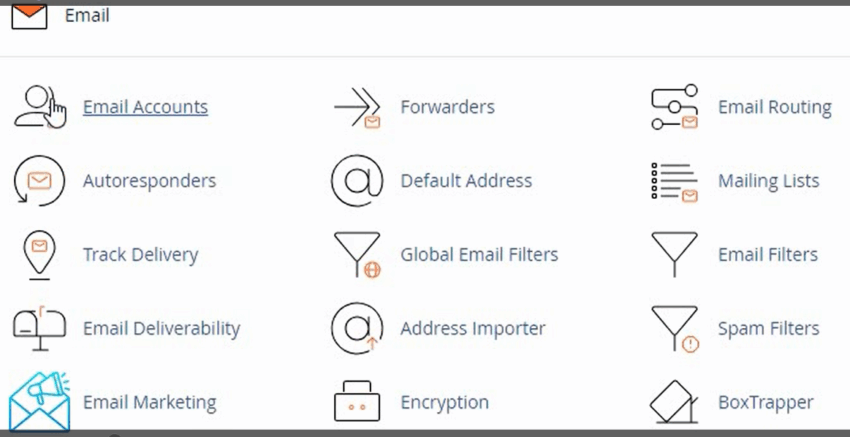
cPanel’s Email Accounts feature lets you create unlimited email addresses (e.g., [email protected]) with robust spam filters like SpamAssassin.
You can also set quotas to manage storage, which is ideal for small teams.
Plesk, on the other hand, shines with its Mail section, offering similar email creation tools but with a cleaner interface.
It includes built-in spam protection and supports email forwarding, though it doesn’t allow mailboxes for alias domains directly.
For Truehost customers, both panels integrate seamlessly with email hosting, ensuring reliable communication.
Application Installation (e.g., WordPress)
South Africa’s growing digital market loves WordPress for its flexibility.
cPanel’s Softaculous installer offers one-click setup for WordPress, Joomla, and over 400 apps, making it a favorite for quick deployments.
Plesk counters with its WordPress Toolkit, which not only installs WordPress but also automates updates, security scans, and plugin management—a huge win for busy site owners.
For Truehost VPS users, both cPanel and Plesk simplify app installation, but Plesk’s WordPress Toolkit gives it an edge for WordPress-heavy sites, while cPanel’s Softaculous is ideal for diverse CMS needs.
File Management
Managing files on your VPS is essential for uploads, backups, and organization.
cPanel’s File Manager is a robust tool for navigating directories, uploading files via FTP, and editing code directly.
It’s intuitive but can feel cluttered with options.
Plesk’s File Manager is simpler, with a clean interface for uploading, editing, or organizing files, plus seamless FTP access.
For South African developers using Truehost’s VPS, both cPanel and Plesk deliver reliable file management, but Plesk’s minimalist design may appeal to those who prefer simplicity.
Usability and Interface: Which is More User-Friendly?
A control panel’s ease of use can make or break your hosting experience.
Let’s compare cPanel vs. Plesk interfaces for South African users, from beginners to pros.
cPanel’s Interface
cPanel’s dashboard is like a toolbox—everything you need is on one page, from domains to databases.
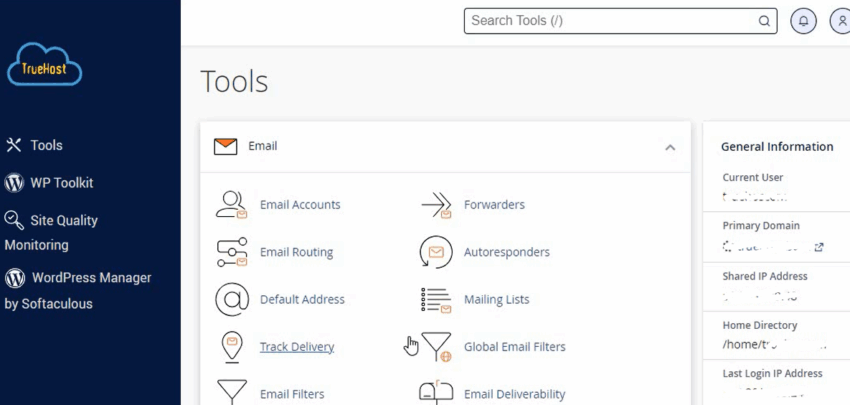
It’s feature-packed but can feel overwhelming for newbies due to its dense layout.
For Truehost users, cPanel’s intuitive help section and tooltips make it accessible, though it requires some getting used to.
Experienced developers love its depth, especially for managing multiple accounts via WHM (Web Host Manager).
Plesk’s Interface
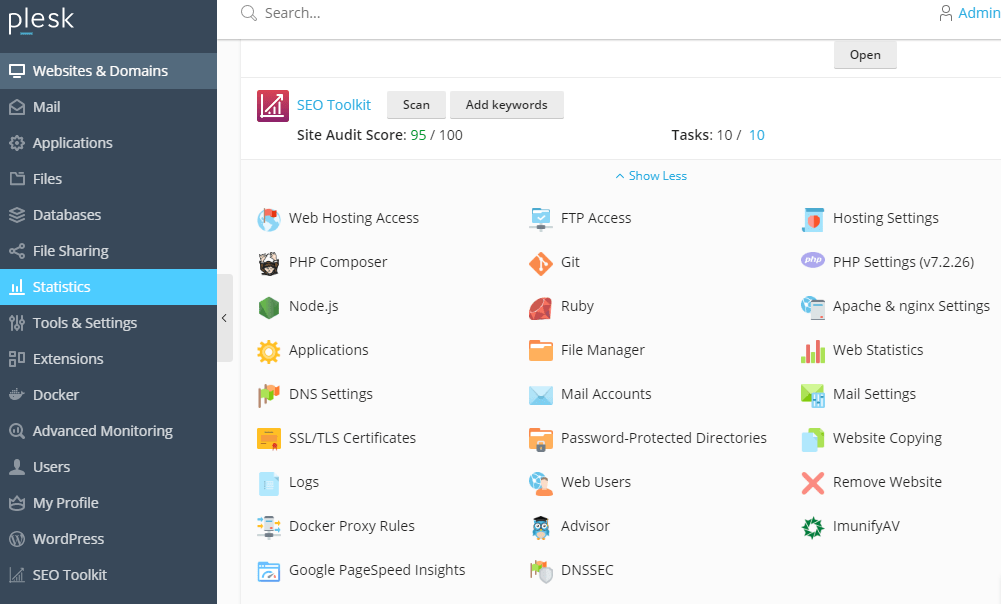
Plesk’s interface feels like a modern app, with a sidebar grouping tools by function or domain.
Its WordPress-like design is a hit for beginners, making tasks like setting up a site or email feel effortless.
South African businesses on Truehost’s VPS will find Plesk’s clean layout ideal for quick management, though advanced users might miss cPanel’s granular control.
Which is Better for Beginners vs. Experts?
For beginners, Plesk’s streamlined interface is easier to navigate, especially for those familiar with WordPress.
cPanel suits experts who need detailed control, particularly for resellers using WHM.
Truehost’s hosting supports both, so your choice depends on your comfort level and project complexity.
Performance and Scalability for VPS Hosting
Performance is critical for South African websites, where fast load times boost user satisfaction and SEO rankings.
Let’s see how cPanel and Plesk impact VPS performance with Truehost.
Resource Management
cPanel optimizes resources like CPU and memory efficiently on Linux-based VPS servers, ensuring smooth performance for high-traffic sites.
Plesk offers similar resource management but supports both Apache and Nginx, giving you flexibility for performance tuning.
Truehost’s VPS plans, with NVMe SSDs and Intel Xeon processors, enhance both panels’ performance.
Scalability for Growing Businesses
South African e-commerce stores or startups need scalability.
cPanel scales well for Linux environments, letting you add resources via Truehost’s scalable VPS plans.
Plesk’s cross-platform support makes it ideal for businesses planning to expand across Linux and Windows servers.
Both panels support Truehost’s seamless upgrades for bandwidth and storage.
Server Software Compatibility
cPanel is Linux-only, supporting Apache and compatible with CentOS and CloudLinux.
Plesk supports both Linux and Windows, with Nginx and Apache options, making it versatile for diverse tech stacks.
For Truehost users, cPanel is great for Linux-focused sites, while Plesk suits mixed environments.
Security Features: Keeping Your VPS Safe
Security is non-negotiable for South African businesses protecting customer data.
Here’s how cPanel vs. Plesk ensures your Truehost VPS stays secure.
SSL/TLS and Encryption
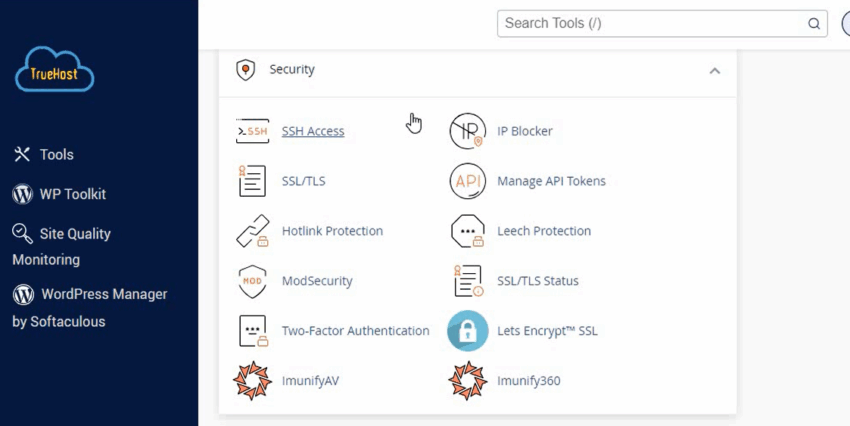
cPanel’s SSL/TLS Wizard simplifies certificate installation, including Let’s Encrypt integration.
Plesk goes further with one-click Let’s Encrypt setup and automatic renewals, making it a favorite for hassle-free SSL management.
Truehost’s VPS plans include SSL certificates to bolster security with either panel.
Firewall and Intrusion Prevention
cPanel offers ConfigServer Security & Firewall (CSF) and IP blockers for robust protection.
Plesk’s Fail2Ban scans logs to block malicious IPs, and its ImunifyAV provides antivirus and malware cleanup.
Both integrate well with Truehost’s 24/7 monitoring for VPS hosting.
Backup and Restoration
Backups are a lifesaver. cPanel supports compressed, uncompressed, and incremental backups via JetBackup, balancing speed and storage.
Plesk offers scheduled backups for domains, data, and emails with easy restoration.
Truehost’s daily backups enhance both panels’ reliability.
Security Updates and Patches
Both cPanel and Plesk provide automatic updates to keep your VPS secure.
Plesk’s WordPress Toolkit adds extra security for WordPress sites, while cPanel’s regular patches ensure Linux compatibility.
Truehost’s managed VPS plans handle updates, letting you focus on your business.
Pricing and Licensing for VPS Hosting
Cost matters for South African businesses balancing budgets.
Let’s compare cPanel vs. Plesk pricing.
First and foremost, when you opt for the Truehost’s VPS hosting, it comes with options for free Control Panels.
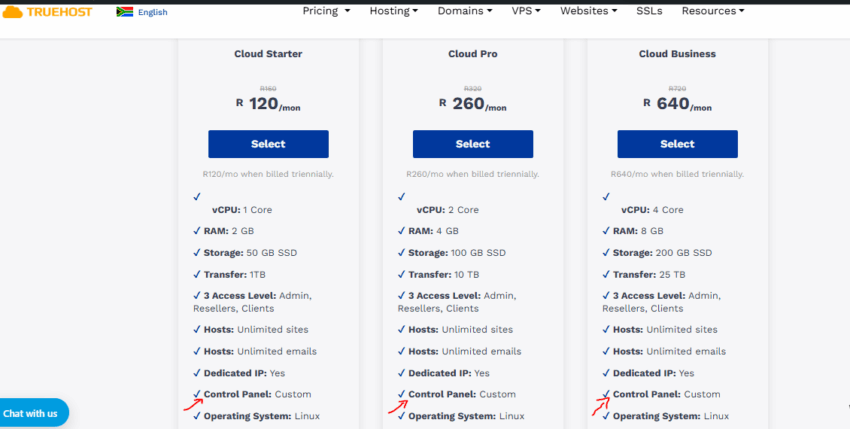
cPanel Pricing
cPanel uses an account-based pricing model, where costs depend on the number of accounts hosted.
For a single site, it’s cost-effective, but resellers with multiple accounts may face higher fees.
Again, Truehost bundles cPanel licenses with its VPS plans, making it affordable for small businesses.
Plesk Pricing
Plesk offers three tiers—Web Admin, Web Pro, and Web Host—with pricing based on features and domains.
The Web Admin tier is cheaper for small setups, but domain limits apply.
As mentioned above, Truehost includes Plesk licenses in its VPS hosting packages, offering flexibility for growing businesses.
Value for South African Businesses
Truehost’s VPS plans start at R120/month, with cPanel or Plesk included, making them some of the most affordable in South Africa.
This eliminates the need for separate licenses, saving you money while delivering premium features like unlimited bandwidth and 99.99% uptime.
Compatibility with Operating Systems
Your VPS operating system influences your control panel choice.
Here’s how cPanel vs. Plesk compares.
cPanel’s Linux-Only Support
cPanel is designed for Linux, supporting CentOS, CloudLinux, and Red Hat Enterprise Linux.
It’s perfect for South African businesses using Truehost’s Linux VPS plans, offering deep integration with Apache and PHP.
Plesk’s Cross-Platform Flexibility
Plesk runs on both Linux (Debian, Ubuntu, CentOS) and Windows, making it ideal for businesses using ASP.NET or .NET Core.
This flexibility suits South African developers with diverse tech stacks on Truehost’s VPS servers.
Choosing Based on Your VPS OS
If you’re on a Truehost Linux VPS, both cPanel and Plesk work well, but cPanel’s Linux optimization is unmatched.
For Windows VPS or mixed environments, Plesk is the clear winner.
Truehost’s VPS hosting supports both, giving you freedom to choose.
Truehost VPS Hosting: Why Choose cPanel or Plesk?
Truehost stands out as South Africa’s go-to hosting provider, offering high-performance VPS plans tailored to local needs.
Here’s why pairing cPanel or Plesk with Truehost is a winning combination.
Truehost’s VPS Hosting Features
Truehost’s VPS plans include NVMe SSD storage, Intel Xeon processors, and 99.99% uptime, ensuring fast, reliable websites.
With 24/7 support and daily backups, your site is in safe hands, whether you choose cPanel or Plesk.
cPanel and Plesk with Truehost
Truehost simplifies setup by including cPanel or Plesk licenses in its VPS plans.
cPanel is ideal for Linux users needing robust tools, while Plesk suits those wanting a modern interface or Windows compatibility.
Both panels integrate seamlessly with Truehost’s infrastructure.
Why Truehost Stands Out
Truehost’s affordability, local support, and tailored VPS solutions make it perfect for South African businesses.
From startups in Durban to enterprises in Pretoria, Truehost’s VPS hosting with cPanel or Plesk delivers value and performance.
Conclusion
Choosing between cPanel vs. Plesk for your Truehost VPS hosting comes down to your needs.
cPanel is the go-to for Linux-based sites, offering a feature-packed dashboard and deep integration with tools like Softaculous.
Plesk shines with its modern interface, WordPress Toolkit, and cross-platform support, making it ideal for beginners or Windows users.
Both panels are powerful, but your choice depends on your operating system, technical comfort, and project goals.
Go ahead and choose your control panel, either cPanel or Plesk, to manage your site with ease and reliability.
Just make sure your choice is compatible with your other hosting tools and caters to your specific needs.
Truehost is a perfect solution to pair with your control a panel, given all the benefits it brings to the table.
Get started now and take your website to the next level!
 Web Hosting
Web Hosting Windows HostingBuilt for Windows apps and websites – stability, speed and flexibility
Windows HostingBuilt for Windows apps and websites – stability, speed and flexibility Reseller HostingLaunch a hosting business without technical skills or expensive infrastructure
Reseller HostingLaunch a hosting business without technical skills or expensive infrastructure Affiliate ProgramRefer customers and earn commissions from sales across our platform
Affiliate ProgramRefer customers and earn commissions from sales across our platform Domain SearchFind and secure a domain name in seconds with our quick lookup tool
Domain SearchFind and secure a domain name in seconds with our quick lookup tool CO ZA Domains
CO ZA Domains All DomainsExplore domain names from over 324 TLDs globally – all in one place
All DomainsExplore domain names from over 324 TLDs globally – all in one place Free Whois Lookup Tool South Africa
Free Whois Lookup Tool South Africa VPS
VPS SSLs
SSLs








